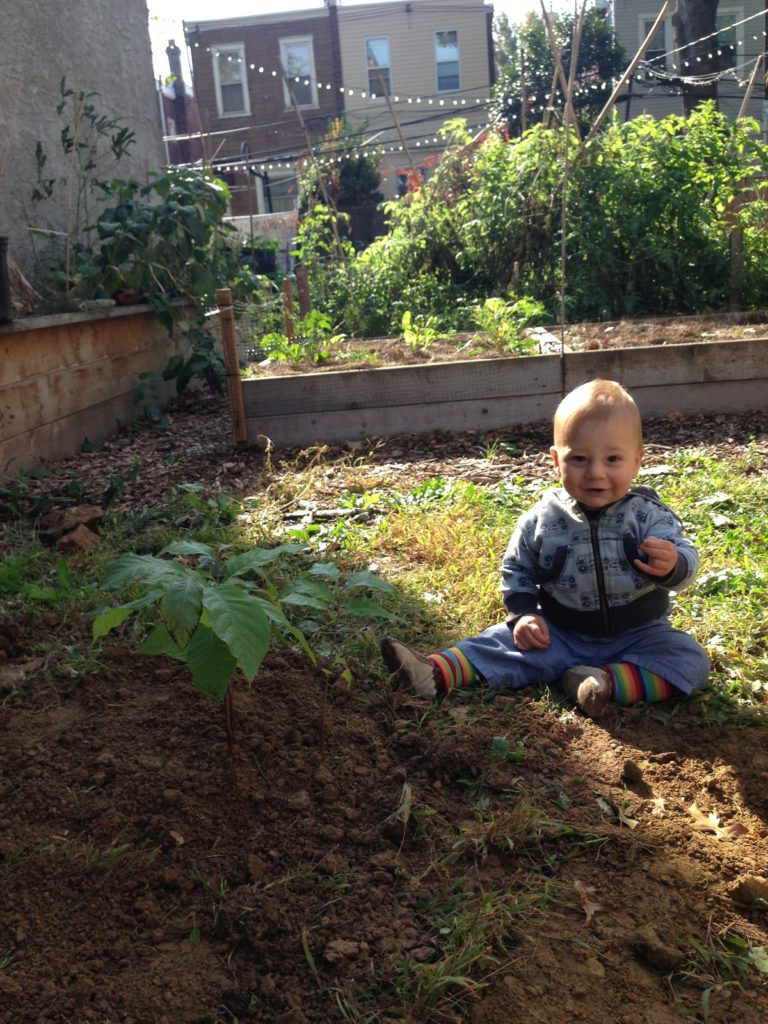
For the past nearly six years, Nati Passow and Rachel Tali Kaplan of 5000 Cedars and Jewish Farm School have been working to build a bountiful garden, communal gathering space, and home-scale food forest from three de-fenced, vacant lots in West Philadelphia. Their project is part of a growing movement of de-fencing advocates that work in community alongside neighbors to join parcels of land for regenerative food growing and community organizing practices.
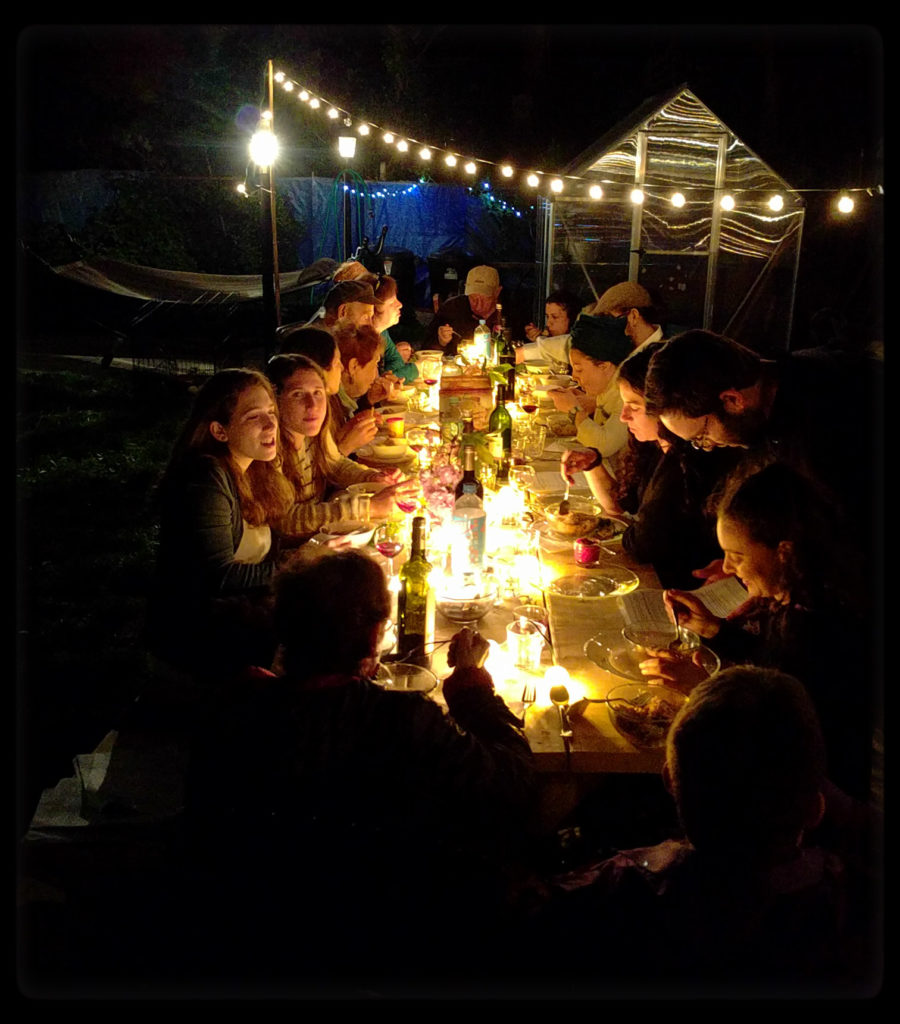
The project began in 2012 when the couple bought the vacant lot next door to their home and began seeding with neighbors a vision for a neighborhood teaching and feeding garden. After a few years of rubble removal, building and reorganizing, the space now serves as a hub for community potlucks, homesteading classes offered through the Jewish Farm School, and other religious and secular celebrations like Shabbat dinners and Passover seders tied to the Jewish agricultural year.
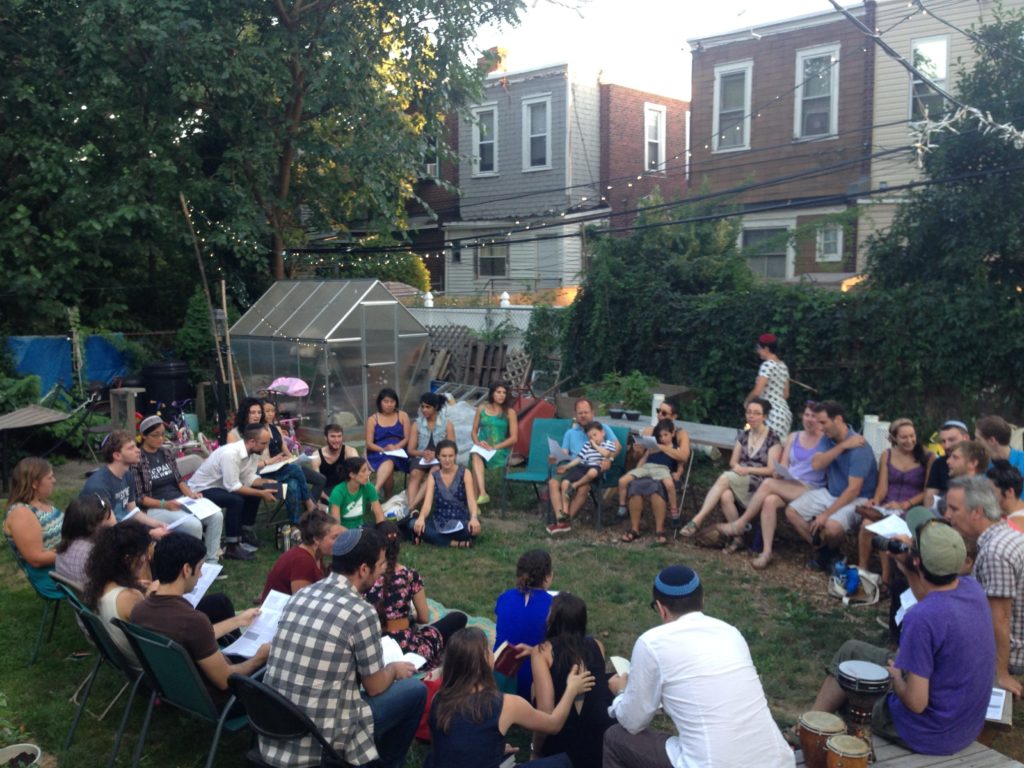
“More than anything,” Passow shared, we wanted to create a demonstration of what people in the city can do on the home-scale, or a little bigger, within the same ballpark. We are excited to model that with this space and invite passerby to eat some food and learn about the plants.”
In July 2016, the Philadelphia Orchard Project took on 5000 Cedars & JFS as a supported orchard partner site. POP assisted in developing an orchard design and installation began in fall 2016 – adding plum and fig trees out front, in addition to a pie cherry, paw paws, blueberries, blackberries, chokeberry, currant and gooseberry. Local mushroom farm Mycopolitan also joined on board – inoculating Stropharia wine cap mushroom spawn amongst the blackberries to boost soil fertility, as they’ve done through several other POP sites. In fall 2017 the orchard was transformed into a food forest with additional plantings of diverse perennial flowers, herbs, and groundcovers.
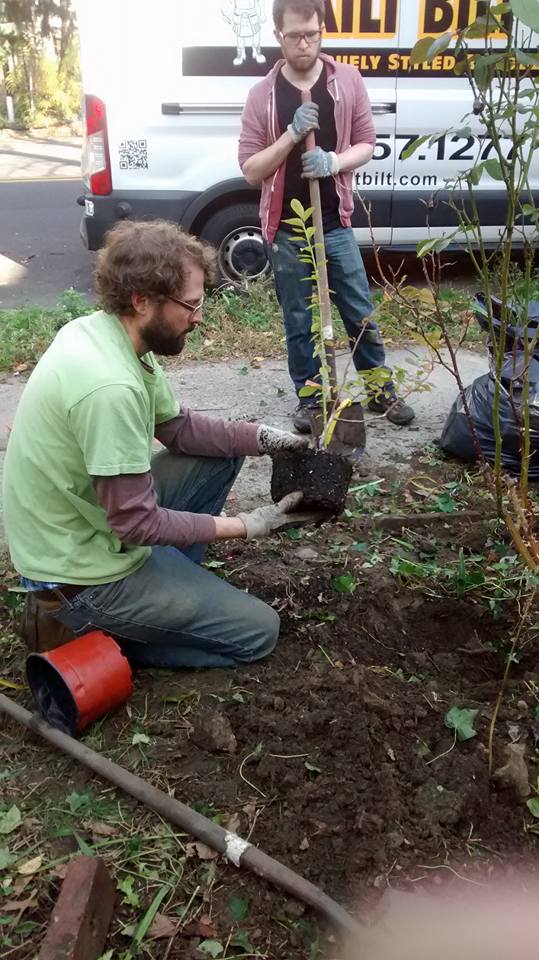
“It’s truly been a community effort,” Passow said. “Volunteer groups have helped transform the space during cleanups and build days, and every time we host a gathering or class, our mission gets stronger.” Since its founding, 5000 Cedars and JFS have provided platforms for local teachers and ag educators to share their knowledge with the community geared around urban sustainability and resilience – offering such classes as small scale backyard vegetable production, composting, medicine making, and more.
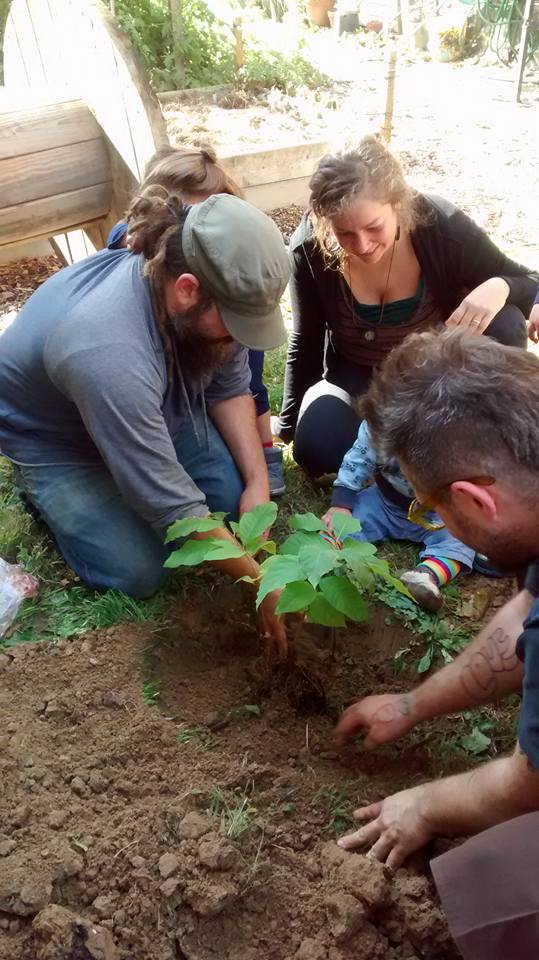
“We hope that when people walk into the space they’re amazed at what they see and the possibility of what you can achieve. We’re well on our way,” Passow said.
To learn more about Jewish Farm School, their mission of using food and agriculture as tools for social justice and spiritual mindfulness, and to view their list of Shtetl Skills workshops for ongoing educational offerings, visit their website here.
This POP Partner Feature was written by Education Director Alyssa Schimmel.
SUPPORT US! If you found this entry useful, informative, or inspiring, please consider a donation of any size to help POP in planting and supporting community orchards in Philadelphia: phillyorchards. org/donate.